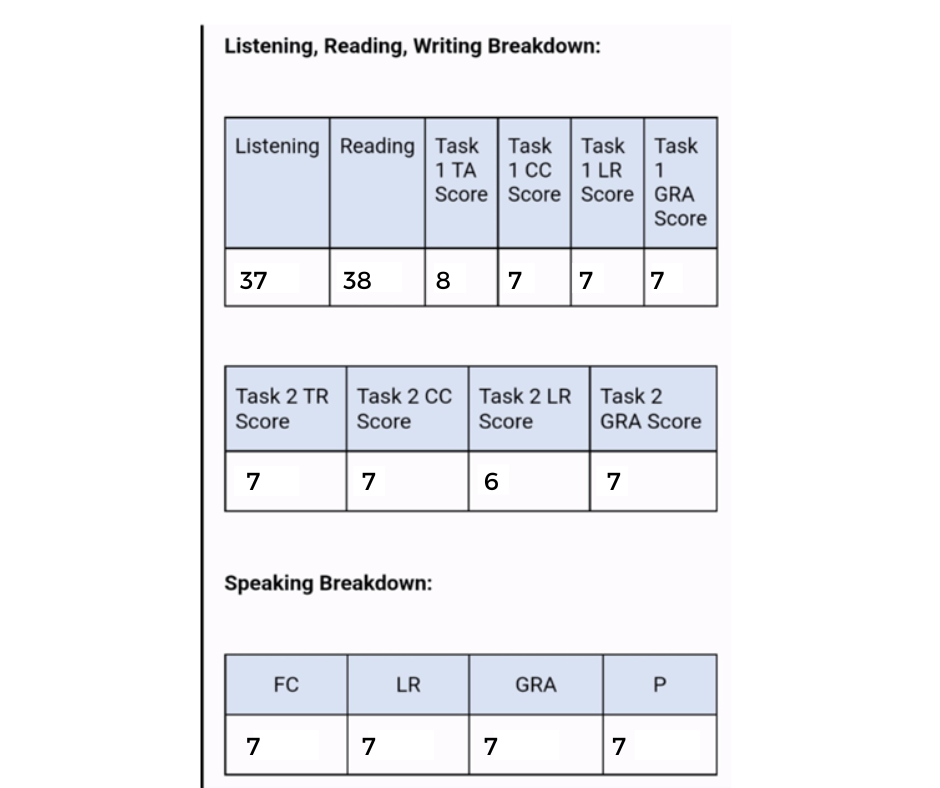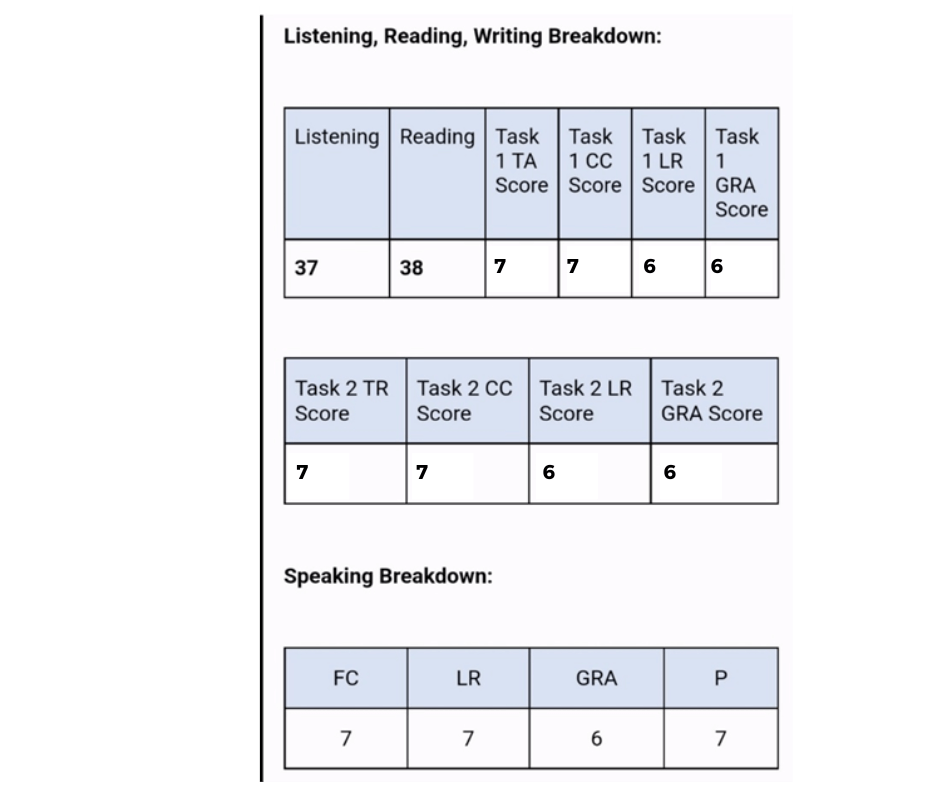With the new breakdowns of scores being available, before you apply for EOR, you can now see what you got in the writing/speaking and make a more informed decision on whether to pay for EOR or not. If you don’t know how to get a breakdown of your IELTS score, then you need to read this post.
Let’s look at an example
Dipesh got these results and overall, 6.5 in writing. He needs Band 7.


Before going for EOR he asks for a breakdown of his results and this is what he is sent through. You can see that he got
Task 1 – Band 7
Task 2 – Band 6.5
He needs one of the criteria in his Task 2 to go up by 1 band.
So, is it worth going for EOR? Possibly, yes. He has a chance of one of the criteria being marked 1 band higher.
This is about as good a chance as he will get.
Let’s look at another example. This time Sara. She needs the same as Dipesh, Band 7 and she got the same scores as him
She also wants to go for EOR but asks for a breakdown of her results first.


This is what she gets. Now you can see that her writing is lower than Dipesh’s and she would need at least 4 parts of the criteria to increase for her to be awarded Band 7 overall.
EOR is very unlikely to be successful here. This is why you need to get a breakdown of your scores before you apply for EOR.
Make sure you have all the information before giving more money to IELTS.
Now, this brings us onto the main point. Who is checking your writing and speaking? If it’s not an IELTS examiner, you won’t be getting accurate scores.
If you are self-preparing, and you are going to spend 150 USD+ on the exam, then make sure you don’t have to repeat it, or go for EOR.
There is a very simple way to see if you are ready to do the exam or not. Do a full writing exam with us and have your writing assessed by an IELTS examiner, and do a full speaking test and get a report on your speaking.
This way, you will know that you are ready, or need more time.
There is no luck in IELTS; it’s just a test of your English, nothing more.